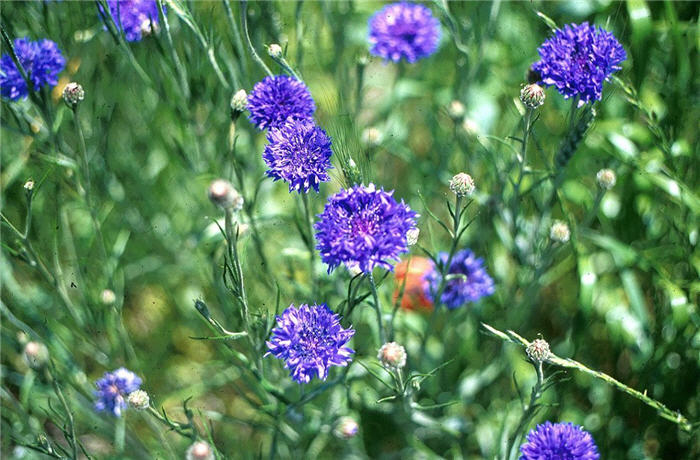| Botanical Name: Centaurea cyanus | |
| Common Name: Cornflower, Bachelor's Button |

-
Anatomy
-
Culture
-
Design
Plant Type
Annual
Height Range
1-3'
Flower Color
Blue, Pink, Violet, White
Flower Season
Spring, Summer
Leaf Color
Green
Bark Color
n/a
Fruit Color
n/a
Fruit Season
n/a
Sun
Full
Water
Low, Medium
Growth Rate
Moderate
Soil Type
Sandy, Clay, Loam, Rocky, Unparticular
Soil Condition
Average, Poor, Well-drained, Dry
Soil pH
Neutral
Adverse Factors
n/a
Design Styles
English Cottage, Meadow, Seascape
Accenting Features
Showy Flowers
Seasonal Interest
Spring, Summer
Location Uses
Perennial Border, Raised Planter, Walls / Fences
Special Uses
Container, Cut Flowers, Filler, Mass Planting, Naturalizing, Small Spaces
Attracts Wildlife
Birds, Butterflies
Information by: Stephanie Duer
Photographer: City of Durham Parks
Photographer: City of Durham Parks
-
Description
-
Notes
This charming garden annual blooms May to July with violet blue, pink, or white flowers. Plants grow from 1 to 3 feet tall, and about half as wide, and have green foliage. They are a lovely cut flower, though removing the spent blooms will limit its reseeding nature and deprive birds of much-enjoyed seeds.
Grow in well drained soil. Prefers a sandy or clay-loam mix, but can established in practically any soil that isn't too wet. Prefers full sun to a bit of shade - too much shade will cause the plant to flop. Butterflies enjoy the flowers; birds enjoy the seeds. An annual, it can reseed - a good or bad thing, depending on your gardening style.